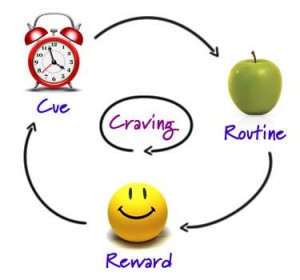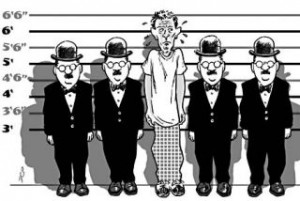In one of Andrew’s recent blog posts, he explained his frustration with students who dropped the course in order to save their GPA. In this class, plenty of students have admitted to quitting a subject because of low grades: many students included in their initial blog posts that they stopped considering being a scientist once they started earning lower grades than they hoped for in science classes. Although this may be an indicator that they really aren’t natural scientists, it might also be a mistake. For instance, students could have learned more material and have been more engaged in science classes than in the classes they earned better grades in, yet focused less on earning a higher grade.

This image came from http://www.artsjournal.com/audience/2012/06/bright-idea-report-card-rewards/report-card/
Unfortunately, as students, it’s difficult to ignore the reality that most schools and employers judge and select students based on their grade point average, especially with more schools becoming test optional. Because of this discouraging setup, most of the time students work towards earning high grades, rather than working in order to learn. Earning a high GPA can be a beneficial incentive that increases student’s motivation and effort, but as students, employers, and schools focus too much on them, they can easily be destructive. Test scores may not be effective way of judging students’ intelligence, but is basing judgements off of GPA really a positive alternative?
College admission officials use high schooler’s GPA and standardized test scores to predict whether or not they will be able to succeed at that college, but is GPA a more useful and accurate indicator? This article explains how GPA shows evidence of soft skills like motivation and attendance. In general, students may be too focused on their grades, but by motivating themselves to earn high grades, they develop skills that can help them succeed in college. In this study, both test scores and GPA were better predictors of college GPA, depending on the level of the first year college GPA. For example, high college grade point averages were unable to be predicted by high school GPA. College Board, although most likely biased in favor of standardized testing, reports that the best determiner of college grade point average is a combination of standardized test scores and high school GPA.
These studies don’t suffer the file drawer problem considering they’ve been published, and college admission officials at colleges everywhere are constantly trying to decide the best method to judge prospective students. The most effective methods are being updated each year, so the first article is a little outdated and therefore does not provide the most reliable information. In conclusion, neither GPA nor test scores are perfect predictors for how well a student will do in college; however, GPA can indicate student’s skills in the day to day classroom, even if it can also corrupt students’ learning and motives.
http://search.proquest.com/docview/225613390?pq-origsite=gscholar









 Image found
Image found